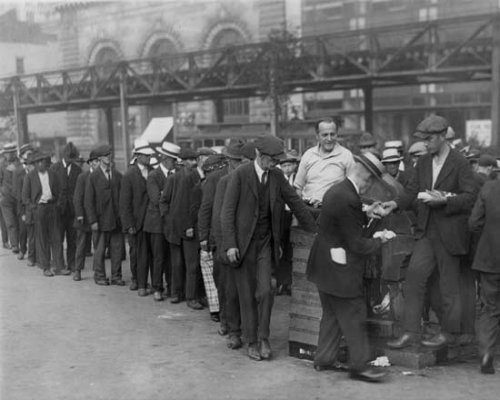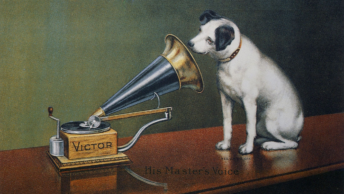
It is probably due to its content. What makes news today? Our world, whether we live in New York or Idaho, seems comprised of a lot of bad news. We live with worldwide terrorism but add to that the local crime, economic troubles, political turmoil, famine, and natural disasters, and it seems overwhelming. Come home some day after a hard day’s work and sit down and watch the local news. If you are not depressed when you first sit down, you will be after watching the news.
Millions of Americans are depressed these days. Many face months and years of unemployment or working a job that makes them “underemployed.” Many are deep in debt due to student loans, car problems as their transportation ages, medical debt, divorce, child care payments that are behind, and bills that go plain unpaid because the money just isn’t there.
But MSNBC or CNN has the answer. They will tell you that our country is approaching $17 trillion dollars in national debt, that Congress does not have a budget and never will, and that some deranged individual just shot a group of innocent people in Paris or at some local high school. I suspect that we have developed a series of news channels that operate 24/7 that scour the globe looking for anything that resembles news. Once they get their teeth into a story, look out. Reporters are willing to risk their lives to get shots of protesters hurling rocks in Syria, gunfire being exchanged in Somalia, and bodies being recovered from the Costa Concordia. Good news just doesn’t sell. Apparently good news or the lack of sex and violence does not increase their ratings. And we know that TV lives or dies by their ratings.
TV ratings are measured during prime time hour by hour. Among viewers only the 18 to 49 demographic age group matters. If you are over 49 or under 18, you are not considered worth measuring. On a recent evening, FOX won the battle with a 3.6 rating, CBS had a 2.3, NBC has a 1.4 and ABC had a 1.2. There is a company called Nielsen Media Research which uses a variety of means to collect the necessary information to rate TV programming. Nielsen has been doing customer and advertising research since the 1920’s and has been gauging national TV viewership since 1950. Nielsen places meters in approximately 25,000 households in the United States. These meters record on a minute by minute basis what is being viewed in that home and by which members of the household. That information is relayed back to Nielsen each night for the overnight ratings. In addition to selecting approximately 1.6 million people to keep diaries during selected months of the year, Nielsen has begun collecting information from certain cable providers. This data is collected through the customer’s own receiver boxes and digital video recorders.
My second reason for bad news upstaging good news is what I call the “thrill value” that bad news generates. Why people take such value in watching their fellow man suffer is beyond me. Storm Stories has become one of the weather channel’s leading programs. Hurricanes, tsunamis, tornados, and cyclones are big attractions. I also think there is a preponderance or bad news today in the world or it sure seems like it. Maybe we always had violent acts and crime but then we never had CNN or MSNBC years ago either. There also appears to be an overload of bad news that exists within our government and state and local cities that did not seem to exist years ago. Revenue does not match expenses in any department or division. We hire employees; we lay off employees. When the budget can’t be balanced, we float debt. The housing market is now overflowing with foreclosures, short sales, and mortgages that border on zero interest but no one seems to be able to meet the new lending requirements. Even the measurement of the national unemployment level has become stagnant and seems to go down only when large groups of people stop collecting unemployment benefits and abandon their job search.
In 2005, antidepressants became the most prescribed drug in the United States. There are at least 25 commonly prescribed antidepressants on the market today. Many of these drugs are advertised on TV and my final thought may be that they should be taken before and during future TV news forecasts.








